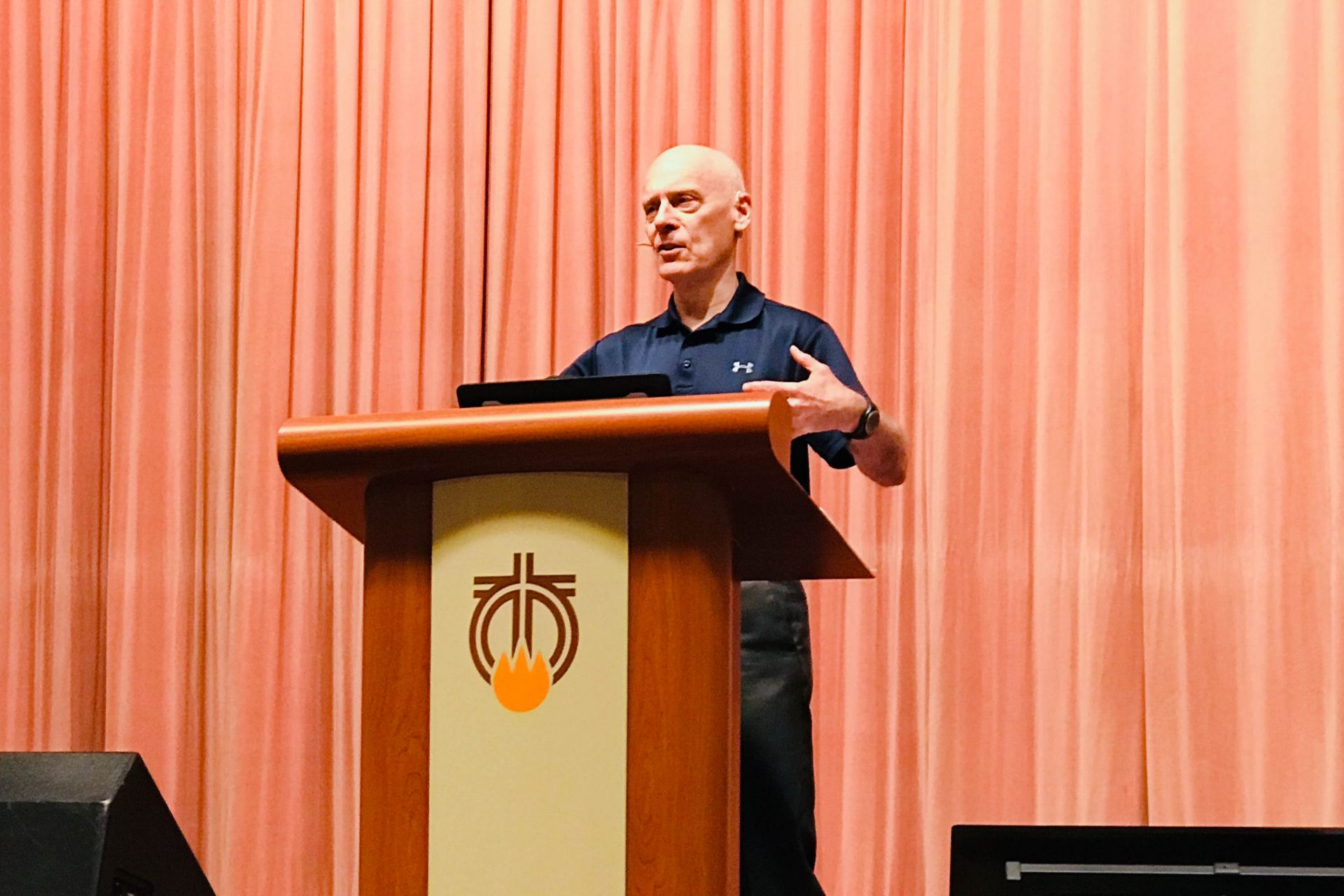Atheists and sceptics perceive Genesis as the Bible’s greatest embarrassment, the Achilles’ heel of the Christian faith.
They think that science contradicts Genesis, which is the Christian faith’s account of how God created the universe.
But astrophysicist Dr Hugh Ross argues that Genesis provides us with one of the best reasons to believe that the Bible is the inspired, authoritative and inerrant Word of God.
And more so today than before.
“The more we learn about science, the more evidence we uncover for the supernatural handiwork of God.”
Speaking at the Reasonable Faith Conference that took place on March 15-16, Dr Ross said: “Over the past several decades of my life, the scientific evidence has gotten progressively stronger and stronger…
“What the Bible declares about nature, indeed, is accurate and testifies of a supernatural creator. Not just any kind of supernatural creator, but the Creator God of the Bible.”
Many of us think that Genesis is the only book in the Bible that points to creation, but it isn’t.
According to Dr Ross, there are 20 other texts. For instance, Job 37, 38 and 39, along with Psalm 104 and Proverbs 8, all give an account of the events of the 6 days of creation.
“The more we learn about nature and the more we learn about science, the more evidence we uncover for the supernatural handiwork of God,” concluded Dr Ross, who founded Reasons to Believe and now serves as a minister of apologetics at Sierra Madre Congregational Church in California, US.
WHAT ABOUT THE CHALLENGES TO GENESIS?
“In the beginning God created the heavens and the earth.” (Genesis 1:1)
This verse is commonly viewed by atheists and some scientists as a clear case where the Bible got it wrong. Cosmology tells us that the universe showed up first and the earth much later on, whereas the Bible stated that both were created at the same time.
But what the sceptics fail to recognise is that in Biblical Hebrew, there’s no single word for “universe” as it has a much tinier vocabulary size than English, explained Dr Ross.

“What they do have is this phrase, ‘the heavens and the earth’. It’s used 9 times in the Old Testament and it always refers to the totality of physical reality. It’s a phrase that’s basically communicating or talking about all physical reality – all matter, energy, space and time.”
Dr Ross added that this very first sentence of the Bible, combined with rigorous scientific proof that a god beyond space and time exists, has led him to believe that a miracle-working God must have created the universe.
Like any good scientist, when Dr Ross went looking for this god that created the universe, he tested all the creation stories of different religions and cultures of the world – he found about 100 of them – and scored them on scientific accuracy.
“Now of those, only 1 got a score on the creation history that was greater than 0 besides the Bible. And that was the Enûma Eliš, the Babylonian account of creation that got a score of 2 out of 14 right. Every other creation story got a score of 0.
“The Bible gets a score of 10 for 10 for the 10 events of creation that are described,” he quipped.
MAKING SENSE OF TIME
But wait a minute.
With all the fossils that have been found and dated, the days of creation stated in the Bible must be wrong. It stated that God only took a day to create sea animals and birds, and another to make land animals.
The numbers simply don’t add up. Or do they?
Dr Ross pointed out that there are several definitions of the Hebrew word yom for “day” in Genesis, one of them being a long period of time (Genesis 2:4 ESV).
In the account of the first 6 creation days, each ends with “there was evening, and there was morning”, giving the impression of a 24-hour day. But there are also other places in the Bible where “evening” and “morning” are used to refer to a beginning and an ending.
This start point and end point, however, was not mentioned in the account of the 7th day. For 6 days, God creates, culminating in the creation of human beings on the 6th day. But on the 7th day God rested (Genesis 2:2).
That’s why we see an average of 1 new species appearing every year before humans, and hardly any afterwards, said Dr Ross.
Convinced that we’re looking at 6 consecutive long periods of time instead of 6 24-hour days, coupled with the view that we’re to understand the account of creation from the surface of the earth below the cloud layers, Dr Ross came to faith in Jesus Christ.
“There’s no contradiction with the established scientific record when it speaks about the age of the universe, the age of the earth and the longevity of which life has been here on planet earth,” he observed.
Dr Ross said: “The fact that (the Bible) accurately predicted scientific discoveries thousands of years ahead of its time is also evidence that it was inspired by the One who actually did the deed.
“And that was a big factor of mine in becoming convinced that the Bible was the inspired Word of God and signing my name in the back of that Bible, dedicating my life to Jesus Christ.”
Still unconvinced? Check out these titles:
- Science And The Mind Of The Maker
- Understanding Intelligent Design
- Reasons For Belief
- God’s Undertaker: Has Science Buried God?
For a limited time only, Thir.st readers can enjoy 20% off on these recommended books from Cru Singapore’s online store. Valid until end May and while stocks last, enter the coupon code “RFS19”.
Interested in other titles? From now until end April, Thir.st readers can also get 15% off all books online with the coupon code “READ15”.










